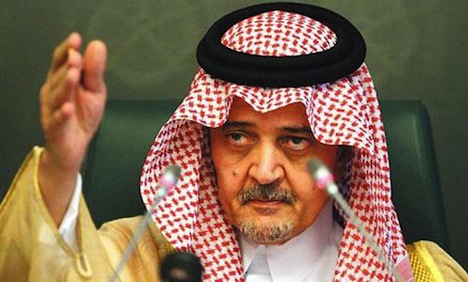
In 2015, we saw how falling oil prices affected world politics from Alberta to Nigeria. Net exporters like Venezuela, Russia and the oil-rich Middle Eastern countries are feeling the drop in revenues, and that could accelerate political agitation as oil prices force budget cuts. ![]()
![]()
As Brad Plumer wrote yesterday for Vox, explaining the fall in oil prices is simple. Supply has outstripped demand, and while global demand is still growing, it’s growing at about half the rate that it was even in mid-2015.
* * * * *
RELATED: Sixteen global elections to watch in 2016
RELATED: Could Norway benefit from the oil price decline?
* * * * *
The difference between $30 oil (about the current price level), $20 oil or $50 oil could make or break incumbents seeking reelection — lower oil prices mean fewer goodies at election time.
In 2016, that means oil prices could affect Scotland’s May regional elections by dampening the economic case for Scottish independence and, therefore, the electoral support for the Scottish National Party. It means that Russia’s September legislative elections could engender the same kind of political protests (or worse) that met the last elections in 2011. Lower oil prices are already endangering Ghanian president John Dramani Mahama’s hopes for reelection in December, given how much Mahama has staked on Ghana’s oil potential. It could even push Venezuela’s opposition, newly empowered as the majority in the National Assembly, to seek chavista president Nicolás Maduro’s recall even more quickly.
More generally, it could make life difficult for Nigeria’s new president Muhammadu Buhari. Not only will lower oil revenues hurt his capacity to deploy resources across Africa’s most populous country, but Buhari must find a way to deliver to Nigeria’s impoverished Muslim north, where Boko Haram continues to pose a security challenge, and Nigeria’s southeastern Igbo population, including Rivers state and Delta state, where much of Nigeria’s oil reserves are located. The southeastern challenge is particularly precarious, in light of the fact that Buhari defeated Goodluck Jonathan, the first president to come from Nigeria’s oil-rich southeast. A wrong step by Buhari could catalyze long-simmering demands for greater political autonomy or even secession.
On the demand side, the European Union (as a whole) imports more oil than any other country in the world — by a longshot. Lower prices could bring about the kind of truly robust economic growth that has eluded the eurozone for decades. That, in turn, could ameliorate the pressures of democratic backslide among the central European Visegrad Group, and it could goose economic activity in Mediterranean countries like Portugal, Spain and Greece, where no single political party has enough support for a majority government. That, in turn, could reduce support for radical leftist parties and bolster more moderate coalitions. It could, marginally, benefit incumbent governments in Ireland, Romania and elsewhere in 2016 and France in 2017. (The same effect, by the way, relieves a lot of pressure on faltering ‘Abenomics’ policy in Japan, too).
In his final state of the union address last night, even US president Barack Obama bragged about lower oil prices. If prices stay consistently low throughout 2016, it could marginally help Obama’s Democratic Party win the November general election.
Autocratic countries, including Saudi Arabia, the United Arab Emirates, Qatar, Angola, Algeria and Kazakhstan, could face popular protests.
So where are oil prices going? No one knows, but here’s what you have to believe if you think oil prices are going to rise substantially anytime in 2016: Continue reading Why global oil prices seem likely to remain low throughout 2016

